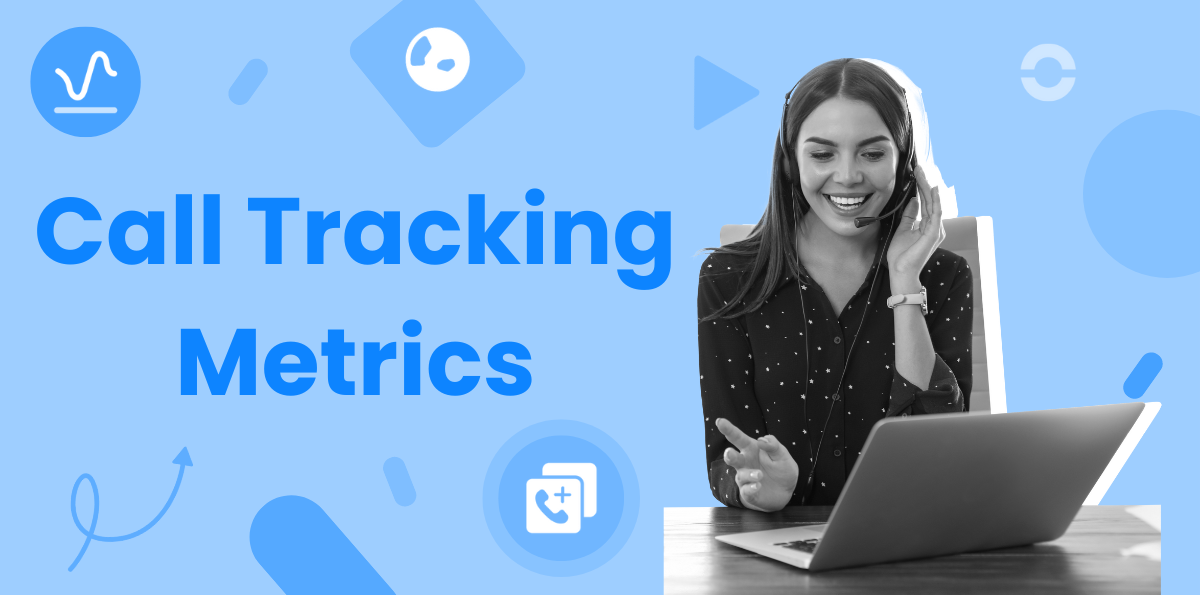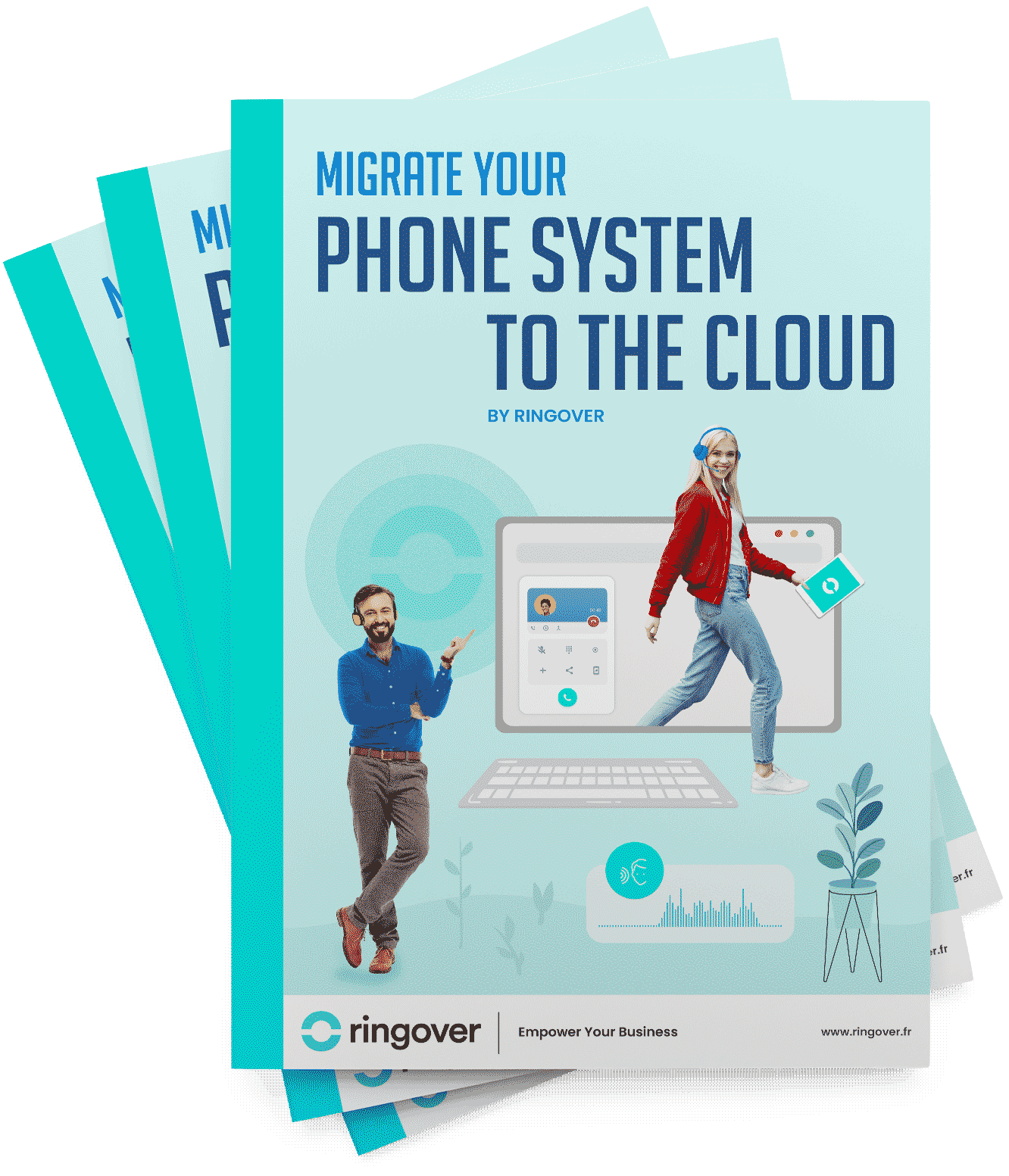Summary
Through the implementation of call tracking software, you're equipped to uncover valuable insights regarding which advertisements, keywords, landing pages, and communication channels are most effective in generating calls and driving conversions. Additionally, it provides an understanding of how your agents manage these calls and the results they accomplish.
Discover Ringover Today
In this blog post, we're excited to guide you through the top 10 call tracking metrics that are essential for enhancing your marketing strategies, boosting your sales, and elevating customer satisfaction levels. Furthermore, we'll delve into selecting the ideal call tracking software tailored to your requirements, the intricacies of call tracking analytics, and the significant advantages call tracking offers to your business.
Best 10 Call Tracking Metrics
1. Call Source
Identifies where incoming calls originated, such as specific ads, online searches, or social media campaigns. Understanding call sources helps allocate marketing resources effectively and optimize strategies to attract more high-quality leads.
2. Call Volume
Measures the total number of calls received over a specific period. Tracking call volume helps gauge the demand for services, plan staffing levels, and identify trends or peak times that require additional resources.
3. Conversion Rate
Measures the percentage of calls that lead to a desired action, such as a sale or appointment. This metric indicates the effectiveness of call handling strategies and the ability to turn inquiries into business opportunities.
4. Conversation Duration
Tracks the average length of calls. Provides insights into the efficiency of call handling and helps identify areas where processes can be streamlined to enhance customer satisfaction and operational performance.
5. Time of Phone Calls
Logs the specific times when calls are received. Analyzing this data helps understand peak call times and optimize staffing schedules to ensure adequate coverage during high-demand periods.
Call tracking is easy when you have the right software installed. You can set Ringover to automatically record your calls, so you never miss any important information!
6. Average Wait Time
Measures the average duration callers spend on hold before speaking to an agent. Reducing average wait time is crucial for improving customer satisfaction and decreasing the likelihood of call abandonment.
7. First-Time Callers
Tracks the number of unique callers contacting the business for the first time. This metric helps assess the reach of marketing campaigns and the effectiveness of efforts to attract new customers.
8. Previous Interactions
Refers to the history of past calls or engagements a customer has had with the business. Access to this information allows agents to provide more personalized and informed customer service, improving overall satisfaction.
9. Call Outcome
Records the result of each call, such as whether it ended in a sale, a scheduled appointment, or required a follow-up. Helps evaluate the effectiveness of call handling and identify areas for improvement.
10. Call Abandonment Rate
Measures the percentage of calls terminated by the caller before speaking to an agent. High abandonment rates can indicate issues with long wait times or complicated IVR systems, highlighting areas where process improvements are needed.
How to Choose a Call Tracking Software
Choosing the right call tracking software is crucial for analyzing and enhancing your phone call strategies. Such software offers insights into call sources, volumes, durations, landing page effectiveness, caller history, outcomes, recordings, and analytics. But selecting the most suitable one for your business involves careful consideration.
- Define your business needs: Start by identifying your objectives with the call tracking software, essential features, and your budget and resources.
- Evaluate software features: Essential features to look for include:
- Call attribution: Tracks call sources like campaigns and keywords, aiding in budget allocation and ROI improvement.
- Call routing: Manages call flow and distribution through features like IVR and smart routing, allowing for staffing optimization.
- Call recording and analytics: Records calls and analyzes performance to extract insights.
- Consider integration options: Choose software that integrates with your current systems (CRM, web analytics, etc.) to streamline workflows and enhance customer experiences.
- Assess user reviews and testimonials: Authentic user feedback can provide insight into the software's reliability and user satisfaction.
One noteworthy solution is Ringover, a cloud-based VoIP software that extends beyond call tracking to include voice and video calls, messaging, and collaboration tools. It's designed for ease of use, requiring no special installations.
Ringover's features include:
- Easy configuration of outbound call campaigns: Features like power dialer, cold calling scripts, and local presence dialing help manage campaigns, with advanced analytics for optimization.
- Seamless, native integrations with CRMs like Salesforce and Hubspot and other tools like the ATS Bullhorn, Vincere, and Zoho Recruit: Enhance data access, workflow automation, and communication personalization.
- Real-time dashboard and call center coaching tools: Offers customizable dashboards and tools for agent training and assistance.
- Security and storage features: Ensures call and data security with encryption, plus cloud storage for call recordings.
Ringover offers three pricing plans starting at $21 per user per month, with a free trial available.
What is call tracking analytics?
Call tracking analytics leverages artificial intelligence (AI) to delve into the nuances of your phone conversations. It's designed to mine your calls for valuable insights, including the detection of keywords, discussion topics, emotional tone, and the caller's intent. This technology is a powerful tool for refining your marketing strategies, boosting sales, and enhancing customer service.
The advantages of implementing call tracking analytics are manifold:
Increase your sales performance
By analyzing call data, call tracking analytics enables you to qualify and prioritize leads more effectively. You'll gain insights into which prospects are more likely to make a purchase, their interests in specific products or services, and their key pain points. Additionally, it's an invaluable resource for enhancing the training and performance of your sales team, ensuring call quality and compliance, and refining sales pitches.
Improve your customer satisfaction
Utilizing call tracking analytics can significantly elevate the customer experience and foster loyalty. It provides a window into how customers perceive your brand, products, and services, along with their feedback. This technology also supports personalized communication, quicker issue resolution, and improved customer retention rates.
What are call tracking metrics used for?
Call tracking metrics serve a variety of important roles, from assessing marketing ROI to enhancing customer satisfaction, guiding data-driven decisions, and elevating agent performance. With call tracking software, businesses can harvest and scrutinize data from voice interactions, unlocking valuable insights into customer behavior, the effectiveness of marketing campaigns, and the overall health of the enterprise.
Key applications of call tracking metrics include:
Informing data-driven decisions
Call tracking metrics offer a foundation for making informed, strategic business decisions. By analyzing trends, patterns, and opportunities in call data, businesses can benchmark their performance against competitors and industry standards. This analysis helps identify strengths and weaknesses, enabling targeted actions to enhance business outcomes.
Boosting agent performance
Monitoring and optimizing agent performance is streamlined with call tracking metrics. These metrics reveal how agents manage calls, the results they achieve, and their adherence to quality standards. Furthermore, they support agent training and coaching, provide valuable feedback and incentives, and foster skill development and motivation, leading to heightened productivity, efficiency, and quality of service.
Conclusion
Call tracking emerges as a potent resource for measuring and refining your telephonic interactions. Using a tool such a Ringover grants access to critical data and insights regarding your call origins, volume, conversation lengths, timing, newcomer callers, prior engagements, outcomes, recordings, and analytical review of dialogues.
Its application can significantly elevate customer satisfaction, streamline marketing efforts, bolster sales achievements, and facilitate business expansion.
To fully leverage call tracking benefits, selecting a software that aligns with your operational requirements and seamlessly integrates with your current systems is crucial. Ringover, a standout in call tracking software solutions, offers a comprehensive cloud-based VoIP phone that transcends mere call functionalities by offering an omnichannel contact center software. To discover all the possibilities offered by Ringover, start your free trial today!




